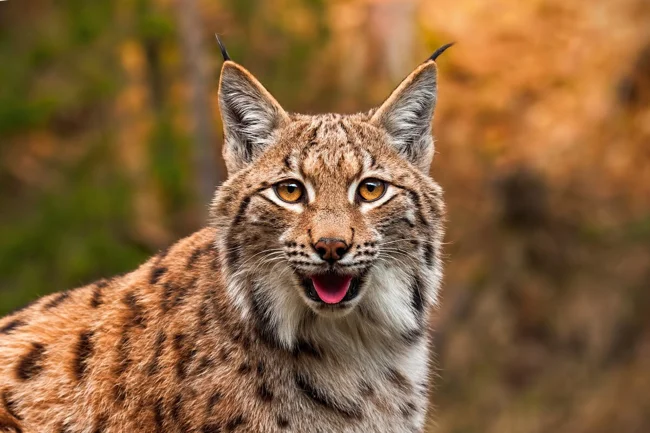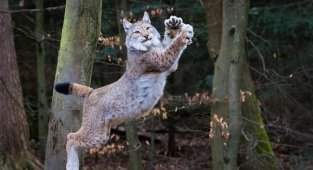Lynx is a “graying” hunter: how the life of a large cat changes in the fall (13 photos)
The lynx is fundamentally different from its relatives. She grew sideburns and tassels, covered herself with dense gray fur, and at the same time shortened her tail. All these features helped her live and survive in places where no other cat could. Autumn has come - it's time to prepare! 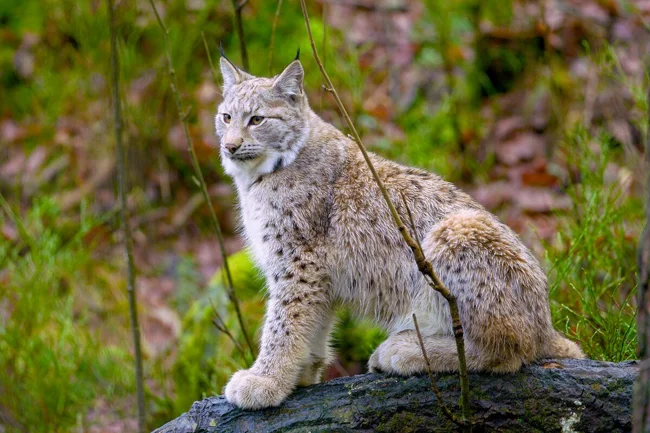
Blows with warmth
Looking at how the lynx changes the length of its fur, thoughts about home comfort come to mind. Well, when you lie in bed under a warm blanket with hot tea in your hands. The autumn molting of a lynx has nothing to do with the tufts of fur surrounding our heroine. A small portion of the dead undercoat is shed by the lynx as new hair grows. Nothing itches or itches, and it gets warmer every day. 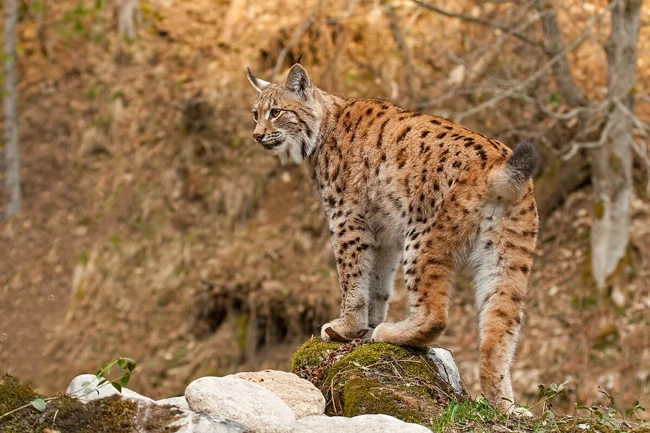
Like a gray gelding
In the autumn, the lynx begins to “grey”. The young coat looks lighter and is always longer than the summer coat. It is this maneuver that helps the cat hide noticeable spots. In summer they help to camouflage in speckled bushes and windbreaks, but against the backdrop of the autumn landscape they become a problem. Even a side-eyed hare could see the spotted cat against the background of yellowed leaves. But the new camouflage coat is harder to see, it’s just perfect for an ambush! 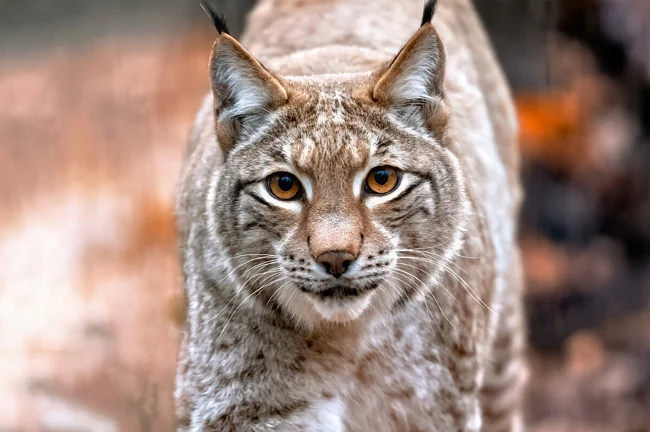
Siberian felt boots
Lynx is completely modernizing itself. With the arrival of winter, she will have to move through sticky snow. Therefore, she begins to grow new stalks. There is an opinion that felt boots are grey, strengthened and roughened socks. If so, then the lynx exchanges socks for winter shoes. In the fall, stubble begins to grow on the paw pads. It not only insulates the taiga princess, but noticeably improves gait stability. 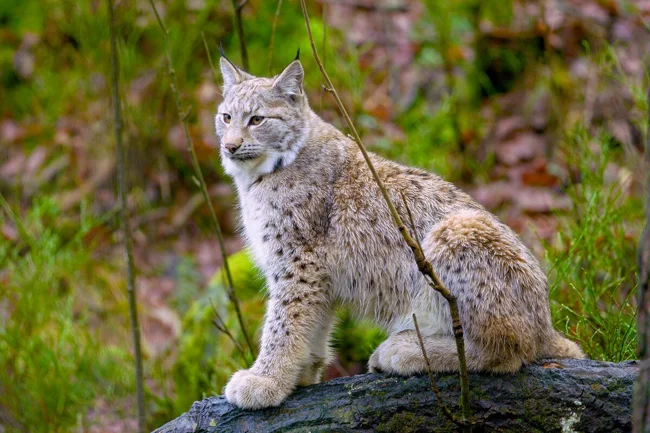
It's too late to rush
Before the onset of cold weather, the lynx needs to accumulate a solid layer of fat, and it makes the only correct conclusion: it needs to eat a lot. Who in the forest has a heavy bone? Who is the most well-fed? Of course, the lynx will not look at the boar - the boar is too strong. But an inattentive hare, a tired black grouse and a weak roe deer are perfect. The animals are also trying to gain fat - nature itself ordered the predator to put them on the menu. The lynx makes only one well-aimed throw, and always from an ambush. 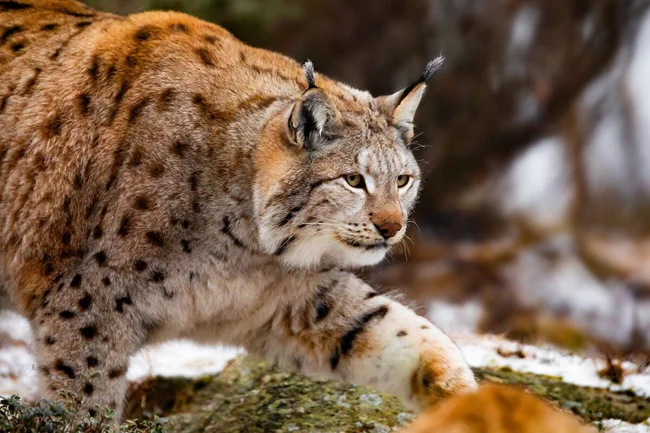
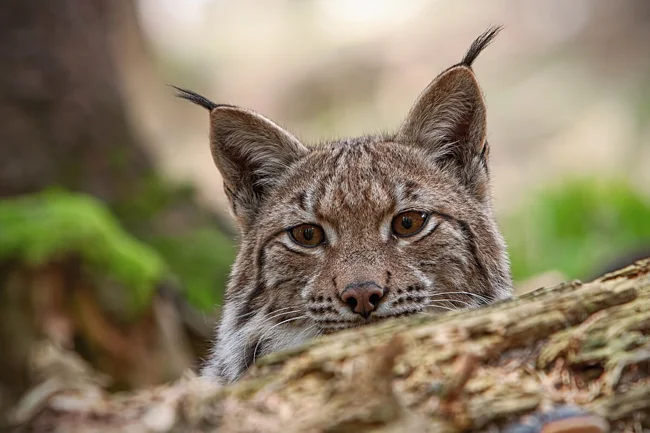
Emergency ration
The taiga cat hunts even when it is full. This is excitement, nothing personal. In the summer, the heroine will throw away provisions right on the forest path, and in the fall she will still try to hide what she got. Sometimes the lynx eats half of its daily diet, and carries the rest into the foliage. But she doesn't succeed in playing hide and seek. She buries her supplies so carelessly that in winter she doesn’t even find half of them. The smell of food quickly spreads throughout the taiga... 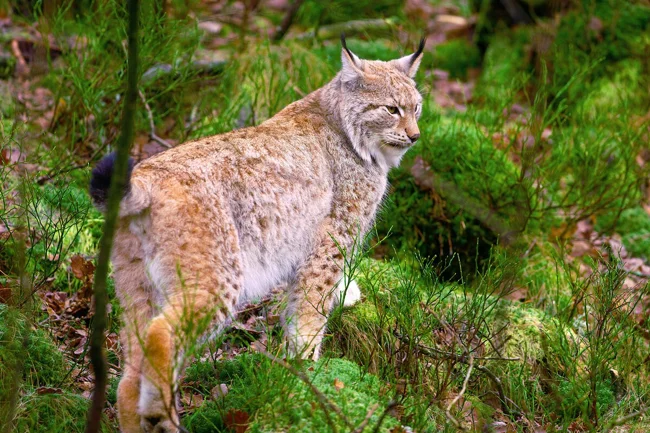
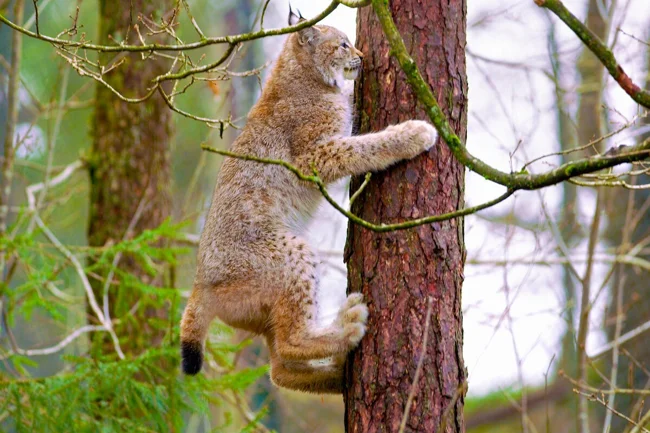
An overly well-fed beast
Appetite? It grows in lynx in proportion to the decrease in temperature in the forest. In summer, the tasselled predator stretches out its meal over several days, and with the arrival of autumn it rapidly increases its speed. It is worth taking into account the daylight hours, it becomes noticeably shorter, and the real lynx prefers to hunt exclusively in the dark. As a result, hunting hours increase, which means the amount of provisions increases. 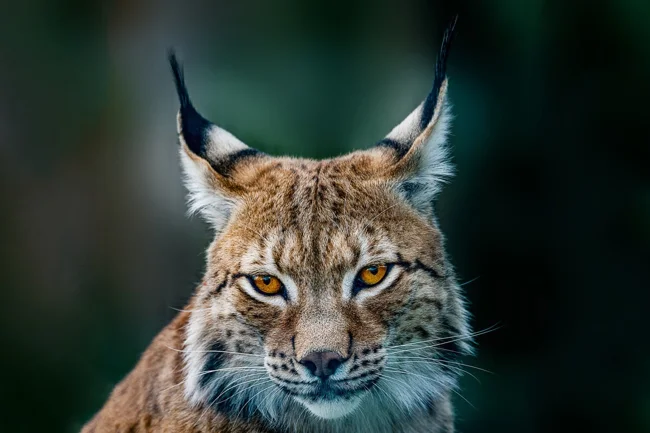
Go, I'll catch up!
So, the diet of a wild cat is truly diverse. She looks at the sideways with appetite, and skillfully engages in mouseing. But most pragmatic creatures migrate in the fall. Therefore, the lynx first tracks the target, then “sits on its tail,” and finally sets up an ambush. If successful, the heroine covers her tracks and hides the results of her work in a kind of cache. Surprisingly different. During the night, our heroine is able to walk about 20-30 km in search of a new goal! 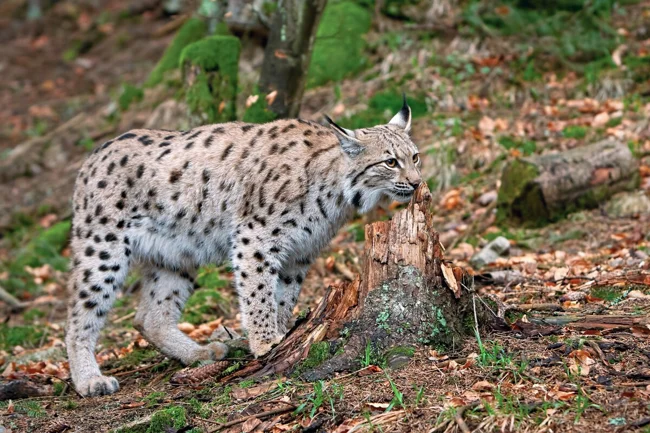
For lard to a neighbor
If it suddenly turns out that the lynx’s usual food has gone ahead of time, then the cat will even give it a head start - let the roe deer fatten up along the way. The beauty herself will go to people. What can I say, the lynx was never afraid of two-legged animals. A rich barnyard - there is nothing better for a lynx! By the way, you need to be an extremely vigilant owner. The instinct of ancient hunters can lead our heroine to pets. Or maybe she simply doesn’t respect furry couch potatoes? 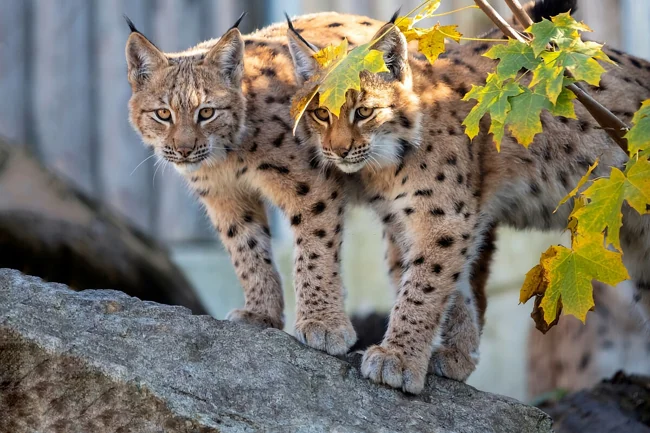
Apple from the apple tree
By autumn, the new generation of youngsters has already grown up noticeably. Lynx cubs strive to master hunting. In the autumn, the lynx becomes an unusually caring parent. The father, by the way, does not disappear anywhere, but helps the mother raise the kittens. The family farm goes fishing together. Parents show, teach and correct mistakes. It is important for them that the young animals can cope with the upcoming problems. For people, September 1 is the day of knowledge, for lynx it is all autumn. 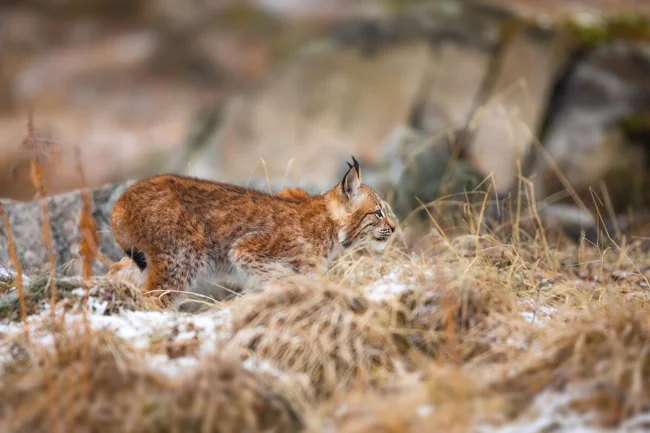
Under mother's wing
However, the character of the young mother deteriorates. How could it be otherwise, when even small predators constantly strive to take away her family lynxes? The lynx tries not to leave the kittens even for a moment. And wolves, and foxes, and wolverines - all crawl to the demanding “meow”. Our heroine always keeps her tassels in the wind, and her paws in combat readiness. The slightest rustle can provoke a lynx into aggression - it won’t hurt its own people! And the male can even lead his adversaries behind him... 